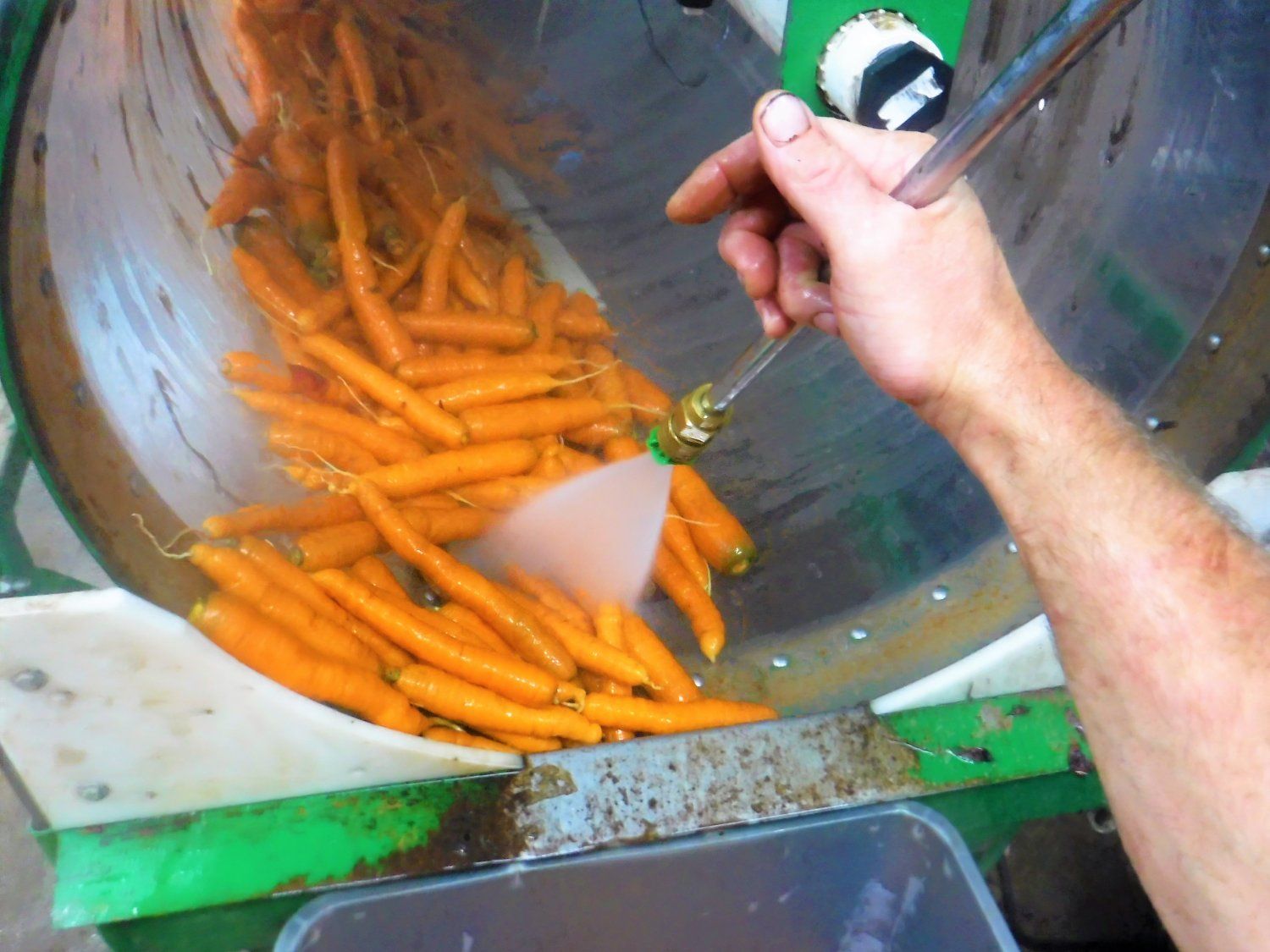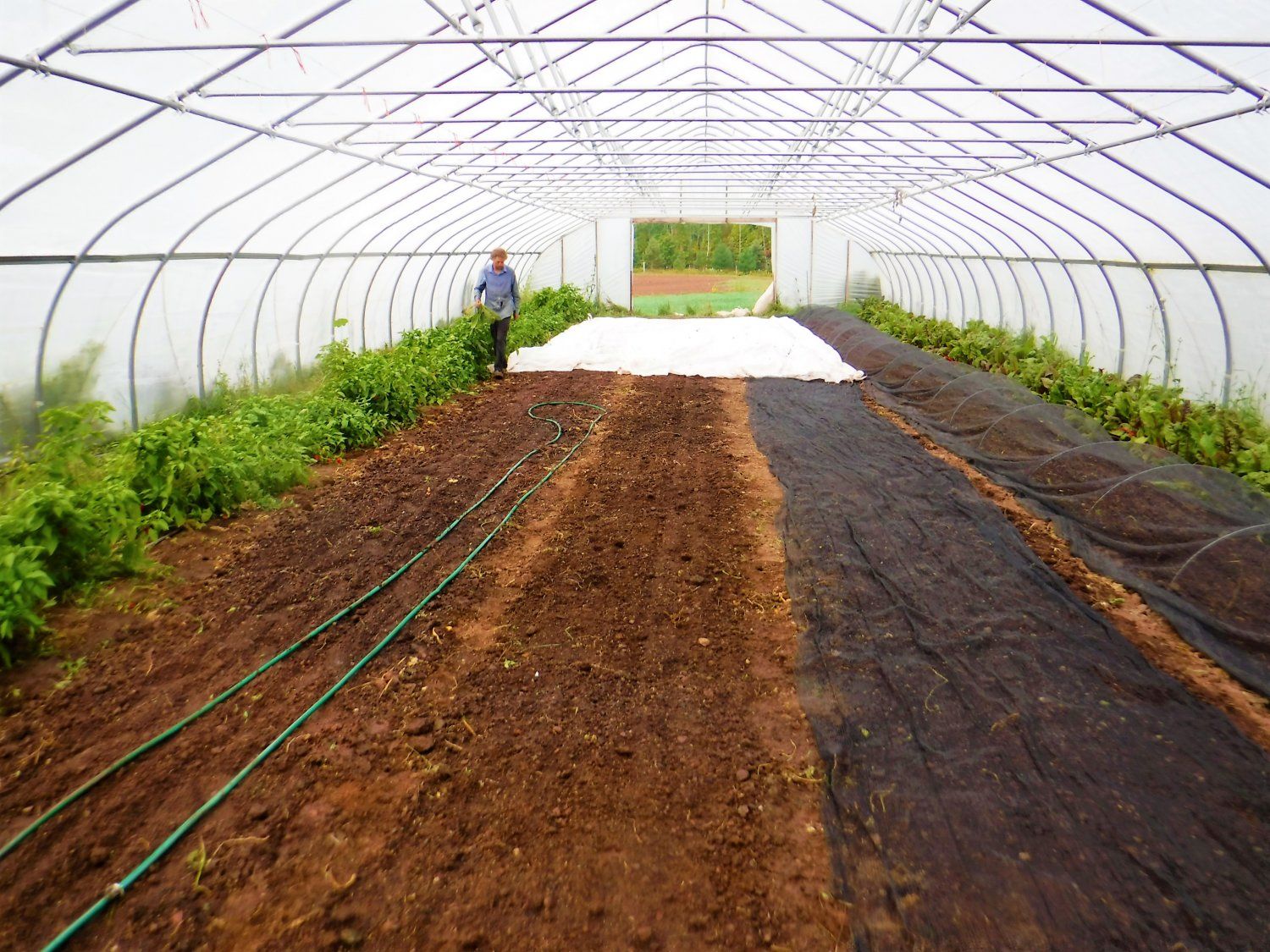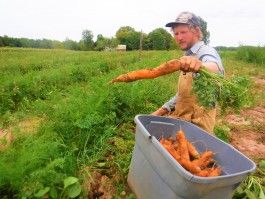It's been another jam packed week here at Great Oak Farm. Harvest, harvest, harvest is just about all we have time to do these days! Despite the drought, the crops are still looking good. Last weekend, we were lucky to get 1.2"of rain, but the ground is so dry that on Sunday we could have plowed/worked up ground without fear of any mud.
I'm not complaining though - every drop counts, and we'll take what we can get when it comes to rains at this point. As you might remember from last week, that 1.2 inches of rain means somewhere around 32,000 gallons of water was applied to each acre we are growing on! So far we've received about 6 inches less than what we'd get in a "normal" summer here at our farm (whatever "normal" means any more!) but we're making the best of it. Put another way, we're behind on about 162,000 gallons of water per acre. Let that sink in for a minute.
A dry fall is actually more farmer-friendly and easier to deal with than a wet, muddy one. The crops have mostly grown out now and aren't as thirsty for water as they were early in the season, and this dry weather is so much nicer for harvesting than mud and cold.
Despite the dry summer, we continue to be impressed with how nicely the carrots are turning out. I think the lack of water made them really stretch down to find moisture, so we're fortunate enough to have some beautiful, long carrots this season. I hope you are ready to enjoy some sweet, crunchy carrots this fall and winter! Just look at those beautiful beds of carrots.
On Thursday, we started our big cabbage harvest for our friends (and Bayfield Foods Cooperative members!) at Spirit Creek Farm. We were able to send them 3 pallet bins full of delicious, organic cabbage -over 2600# of cabbage! In a few more weeks, we'll send them another 3,000+ pounds of cabbage. They will use it in making their award-winning lacto-fermented krauts and kim-chis, which are also available to add into your veggie boxes. My new favorite is the mustard kraut - it goes perfectly with some Sheboygan brats and some sweet corn on the grill with steamed and buttered green beans. Starting this week, we'll also have 20# cases of our organic cabbage available in the CSA if you'd like to try your own hand at making sauerkraut.
.JPG)
Also, if you're looking for some inspiration for your Halloween costume, Farmer Alex has an outfit you might want to consider. Add in some googly-eyes on that head of cabbage, and you're all set!
The melon trials that we are conducting with the University of WI are continuing to crank out sweet, juicy melons. So far, my personal favorite is the usually large to XL variety called Divergent (has a pretty bright yellow rind when ripe). The small ones (mostly a variety called D'artagnan - pronounced Dar-tan-yun) are really flavorful and are perfect for cutting in half, scooping out the seeds, and filling the cavity with vanilla ice cream. The best part is... no bowl to wash when you are done!
As a refresher from last week, the small ones are about 2 pounds or less, the medium sized melons are in the 2.5-3 pound range, the large ones are 3-3.75#ish, and the XL ones are the 4+ pounders. This dry weather has helped them resist splitting in the field when they are ripe, and the flavor is outstanding - nice and sweet. Most grocery store melons are harvested before they are actually ripe, to prolong shelf life and prevent splitting in the field as they ripen. This is also why storebought melons taste most often like cardboard!
Also, as a reminder again about the sweet corn:
As organic farmers, we don't use synthetic chemicals to kill pests in our crops, including really difficult pests to control like corn ear worms. We DO use a biological bacteria called bacillus thurengiensis (also called bt) that only affects caterpillars (including these ear worms) and it does a pretty good job, but even still it's tough for that bacteria to get inside the corn ears and get after those caterpillars. The bt comes as a powder, and we mix it with water to get good coverage on the crops with our sprayer. Below you can see how we apply that bacteria with a boom sprayer behind the tractor. It's actually kind of a fun process to conceptualize. I like to think we're unleashing a giant pack of little bacteria to go racing through our corn and chase down those worms. Go get 'em, little bacteria!
As that bacteria is a biological means of control, it doesn't persist in the environment very long at all. If the bacteria doesn't quickly find a host to feed on, it can't survive and breaks down. Also, it is just washed off when it rains, so we have to apply multiple times a season to keep bacteria populations high enough to get good control. While we do our best to keep those ear worms at bay, occasionally they slip through our defenses, and you might see a caterpillar in the tip of your corn ear. Good news - that ear is still fine to eat! Just trim off the tip that the caterpillar fed on and enjoy the rest of the ear. And rest assured knowing what you see is what you get - no hidden, nefarious synthetic chemicals lurking in your food. Caterpillars can be trimmed out and washed off. Synthetic chemicals, not so much.
Speaking of bugs, in between all the harvesting this week we began taking down our cucumber vines. Don't they just look awful?! They were destroyed by a virus that was spread early this summer by striped cucumber beetles. We had hoped that the many predatory insects we found in our hoophouses would control the striped cuke beetle population - and actually, they DID! The problem was that the beetles were carrying a virus, much like a tick can carry Lyme's Disease. The beetles were taken care of by the predatory insects, but the virus they they spread through the plants had taken hold and continued to destroy plants long after the beetles were no longer a threat. While we are sad to see cucumber season end prematurely, we'll be turning these beds over and seeding them down to fall spinach in the coming days. Out with the old, in with the new - that's the nature of farming and eating seasonally and locally.
Well, that's it from the farm this week. I hope you and yours are staying healthy and getting out to enjoy these beautiful late summer days! Only 2 more weeks and counting until our typical first frost.
In community,
Farmer Chris
Great Oak Farm

.JPG)
.JPG)
.JPG)
.JPG)
.JPG)
.JPG)
.JPG)



